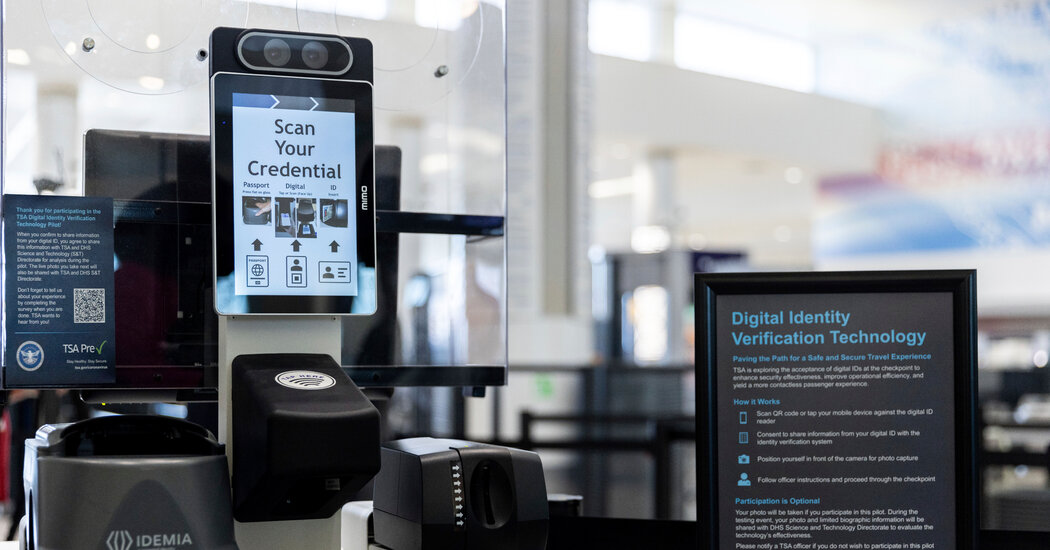A bipartisan group of senators is pushing to halt the expansion of facial recognition technology at airports in the United States and restrict its use as part of the Federal Aviation Administration reauthorization bill that is making its way through Congress.
Citing privacy concerns, Senators Jeff Merkley, Democrat of Oregon, and John Kennedy, Republican of Louisiana, are proposing to block the expansion of the technology until 2027 and require the transportation security administrator to make clear that passengers can opt out at airports where it is in use.
With a Friday deadline for renewing the aviation law, the proposal is among the amendments likely to get a vote before the bill can pass. It has pit privacy advocates in both parties against consumer and industry groups that argue that the technology has the potential to vastly cut down on wait times at airports and increase convenience and safety.
The Federal Aviation Administration is planning to expand facial recognition technology to more than 430 airports, from 25, as part of an effort to speed up the check-in process. Using kiosks with iPads affixed to them, passengers have their photographs taken and matched to an image from a government database instead of presenting a physical identification card.
Mr. Merkley said he grew concerned about the technology after encountering it at Reagan National Airport in Washington, D.C. While a facial scan is optional, many passengers feel pressured to comply, he said.
The senator often insists on his right to decline the facial scan, but he said some airport security workers pushed back. Until recently, he said, there was no sign clearly indicating that passengers are not obligated to have their faces scanned at security checkpoints.
“Because I made such a fuss over it, they put a little postcard that says this is optional, but what you really see is an iPad that says ‘follow instructions’ or ‘follow the orders,’” Mr. Merkley said. “So people just do not believe they have this option. They’re afraid of getting arrested. People are nervous.”
The U.S. Travel Association is raising alarm about the amendment, arguing that it would create a “severe and troubling scenario for travelers.”
Geoff Freeman, the association’s president and chief executive, said the proposal to crack down on facial recognition technology at airports was “dangerous, costly and threatens to create chaos at America’s airports.”
“Eliminating the use of biometrics…
Click Here to Read the Full Original Article at NYT > Travel…
